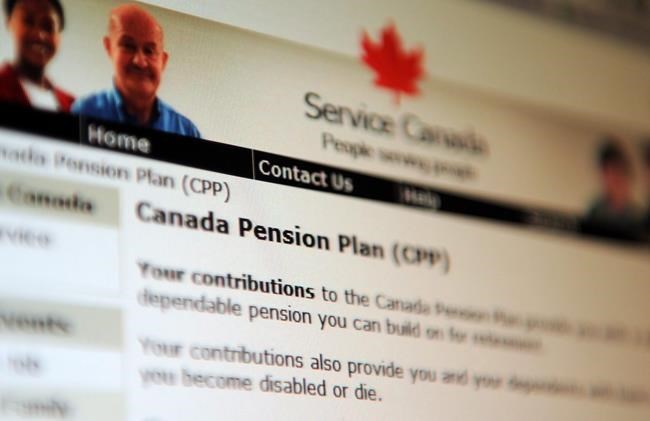TORONTO — Canada's largest pension fund manager says it will continue to look for investment opportunities around the world but has no current plans to help with Ukraine's eventual reconstruction once the war with Russia ends.
"We never close the door to an investment opportunity, but it would come back to us looking at it as an investment opportunity," CPP Investments CEO John Graham said in an interview Thursday.
Before taking such a step, it would first spend some time learning about the country because it's not familiar with its "investable universe."
He said the institution's only mandate is to maximize returns without an undue risk of loss. About 16 per cent of its investments are in Canada even though the country accounts for three per cent of the global economy.
"The way we've thought about our global expansion is we have tried to be very surgical on which countries we invest in because we want to invest in where we see opportunity."
That means primarily putting its money into large economies where it has some expertise, including China, India and Brazil.
Graham said investing globally is in the best interests of its 21 million contributors and beneficiaries.
The institution regularly analyzes potential geopolitical events to ensure it has a resilient portfolio that can withstand different shocks. A potential invasion of Taiwan by China that is top of mind for many these days is one of those scenarios.
Unlike many Canadian firms, CPP didn't have to divest from Russia over its invasion of Ukraine because it has no such investments within its active portfolio, Graham told a business audience following a luncheon speech to the Canadian Club of Toronto.
"The Russian invasion of Ukraine was a bit of a game-changer for people," he said.
In responding to a question from a member of the audience, Graham said it doesn't support total divestment from the oil and gas sector even though it began incorporating climate change risks and opportunities into its portfolio more than a decade ago.
"We believe it's counterproductive to achieving net zero," he said.
"This is going to require lots of capital and if the goal is to actually remove carbon from the economy then selling doesn't achieve that."
CPP has committed that its operations will be net zero by March 31, 2023 and its investment portfolio will be net zero by 2050.
Earlier, Graham said active management will win the day against today's challenges of slowing economic growth, elevated inflation and weakened equity markets.
Simply exposing capital to markets has been a "winning strategy" over the past decade amid increasing valuations.
But rising geopolitical tensions, supply chain disruptions, lockdowns and weakened public markets now make it an increasingly challenging environment for investors to navigate.
"This grim picture might seem overwhelming, but in many ways CPP Investments was built for times like this," he said in his speech.
"We were specifically designed to create value over the very long term, and to be resilient in the face of wide-ranging market and economic conditions."
Graham said he expects inflation will remain elevated in the near-term largely because supply-side issues haven't been resolved. He pointed to pandemic lockdowns, national security and the war in Ukraine that disrupt the delivery of essential materials that fuel the global economy.
The key is active management and diversification to mitigate risk and deliver a more resilient portfolio. That means investing in a wide range of asset classes and growth-oriented companies that perform differently throughout the economic cycle.
"It is difficult to get this benefit if you are mainly a purely passive investor," he said.
Graham said the institution's flexibility doesn't mean it's immune to market volatility or having a tough year or two.
The pension fund delivered a 6.8 per cent return last year to $539 billion. Its 10-year return was 10.8 per cent.
Graham said CPP doesn't try to call the bottom of markets, but rather stays invested and keeps looking for quality assets.
However, he said closing deals is more challenging because there's a big gap between buyers and sellers on price.
"We are also seeing less competition for high quality assets, as short-term money is sitting on the sidelines."
He suggested retail investors can stick handle today's economic challenges by following its example by thinking long-term.
"Invest. Don't speculate," Graham said. "If you find yourself churning your portfolio, you should probably rethink the portfolio construction."
This report by The Canadian Press was first published June 23, 2022.
Ross Marowits, The Canadian Press



